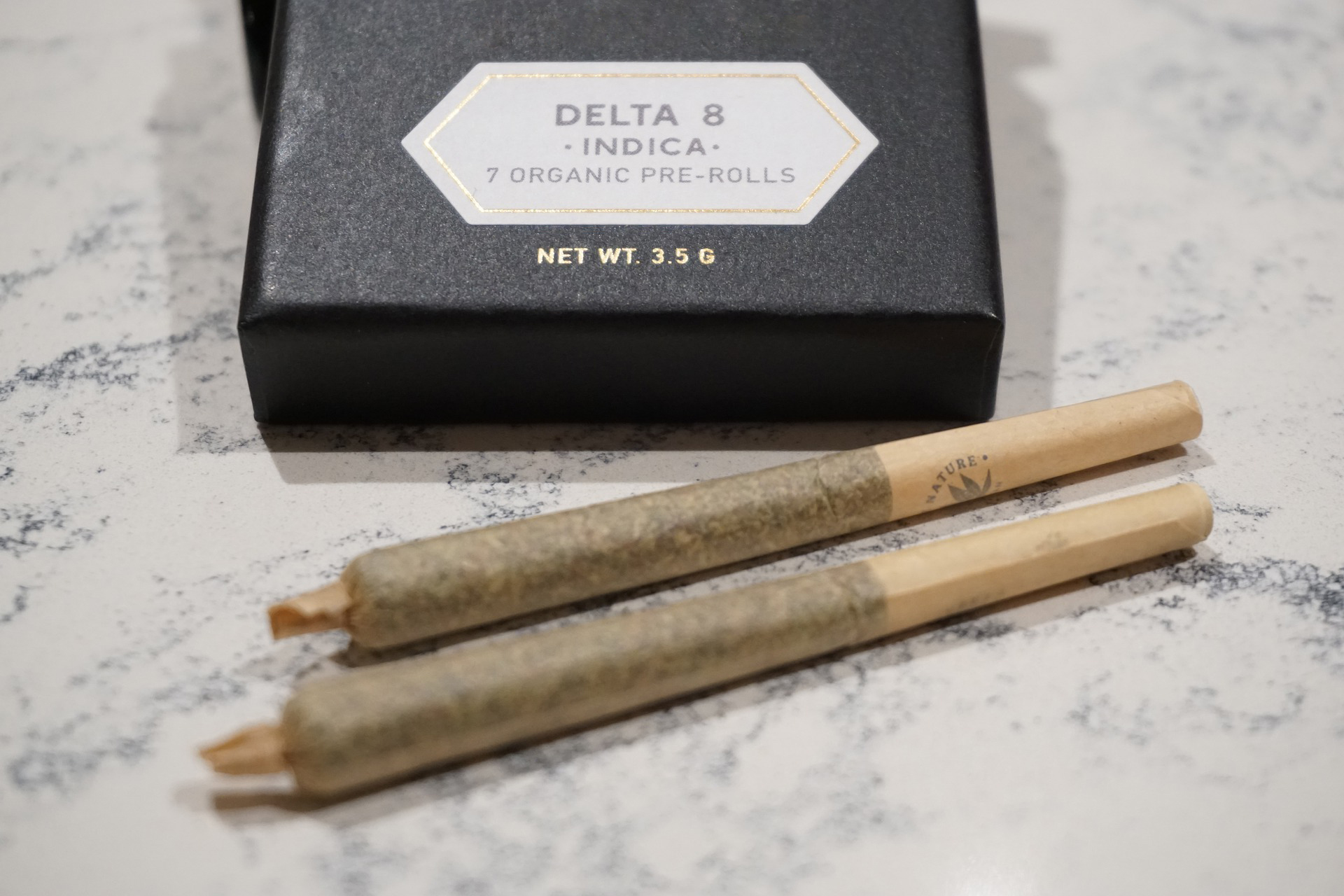
Eight things to know about Delta-8
(August 2021) Delta-8-tetrahydrocannabinol (Delta-8), also known as “marijuana-lite” or “legal weed,” has experienced triple-digit growth in popularity since April 2020. But what exactly is Delta-8, and what does it mean for your drug-free workplace program? Here are eight pieces of information to know about Delta-8:
- Close-cousin to THC: Delta-8 is a naturally occurring cannabinoid found in marijuana and hemp (two plants in the cannabis family). Its chemical structure is very similar to Delta-9-tetrahydrocannabinol (commonly called THC), the high-inducing substance in marijuana.
- It can produce a high: Because its structure is similar to THC, Delta-8 can cause a high. However, Delta-8 is said to be only 75% as potent as THC, so the high caused by Delta-8 is a milder one. Additionally, users report Delta-8 does not impact their mental clarity or ability to focus on activities.
- Large quantities need to be synthesized: While naturally occurring, Delta-8 is only found in small amounts in cannabis, making it expensive to extract enough to sell in products. To reduce costs, Delta-8 producers combine cannabis with chemical solvents to synthesize Delta-8 in larger quantities than what naturally occurs in the plant.
- The 2018 Farm Bill made Delta-8 legal … maybe: The 2018 Farm Bill created a distinction between hemp (defined as having less than .3% THC and marijuana (containing more than .3% THC). While marijuana, and products derived from it, remains illegal at the federal level, the Farm bill defined hemp as “… any part of that plant, including the seeds thereof and all derivatives, extracts, cannabinoids, isomers, acids, salts, and salts of isomers, whether growing or not, with a delta-9 tetrahydrocannabinol concentration of not more than 0.3 percent on a dry weight basis.” Since Delta-8 is not specifically mentioned, its producers believe this means they can legally sell their product.
- The August 2020 Drug Enforcement Administration (DEA) memo made Delta-8 illegal … maybe: After the 2018 Farm Bill passed, the DEA released a memo clarifying the Farm Bill’s impact on the Controlled Substances Act. While it makes no official ruling on Delta-8, it does include a passage that says, “All synthetically derived tetrahydrocannabinols remain schedule I controlled substances.” While Delta-8 is naturally occurring, the majority of Delta-8 on the market is synthesized from CBD. Delta-8 producers are unclear how the DEA classifies this synthetization process (i.e., whether Delta-8 is “synthetically derived”) and are still waiting for the DEA to release its specific stance on Delta-8.
- Status in Ohio: The Ohio Department of Agriculture, which regulates hemp, is waiting on the release of the DEA’s ruling on Delta-8 before deciding how Ohio will regulate it. In the meantime, the Ohio Department of Commerce is requiring all medical marijuana processors to include information about Delta-8 on product labels. Additionally, the Department has mandated that Delta-8 be included in the total THC count of products sold at Ohio’s dispensaries.
- Available to anyone who wants to buy it: While Ohio has regulated Delta-8 related to medical marijuana, Delta-8 products are currently being sold openly and assumed legally in smoke shops, gas stations, local pharmacies and newsstands across the state. And because it is currently unregulated, there are no age restrictions on who can purchase it.
- Use at your own risk: Because Delta-8 isn’t regulated by the Food and Drug Administration, there is no oversite around product labeling or assurances that the labels are correct. At least two different organizations have tested Delta-8 products to check the accuracy of product labels. In one study, all but one of the 16 products tested contained Delta-9 THC, and several had traces of heavy metals. In the other study, over half had illegal levels of Delta-9 THC, and over 60% contained less Delta-8 than the label claimed.
Besides all the buzz about Delta-8 being “legal weed,” it’s also important to recognize there are complications around the question, “Will Delta-8 show up and, if so, be reported in a drug test?” Standing between that question and a definitive answer are answers to secondary questions like,
- “What type of test technology is being used?”
- “Are there are any authorities – like the Department of Transportation (DOT) – at play?”
This heavily nuanced issue can create hardship in the workplace – especially for the employee who uses Delta-8, presumably legally, yet tests positive on a workplace test.
Delta-8’s newness on the market also means that research is still needed to fully understand its effects on an individual. Additionally, its unregulated nature exposes users to the risk of unknowingly consuming harmful substances or more of a substance than they intended.
It’s important to stay informed about current drug trends so you (and your employees) can make educated decisions when it comes to your drug-free workplace program.